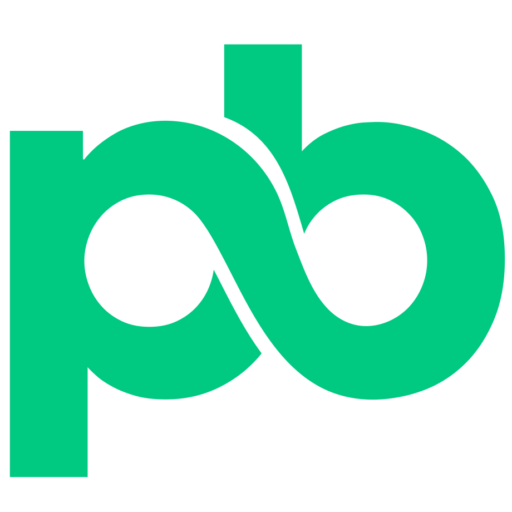Starting and running a business Ontario can be an exciting experience. Of course, it comes with many ups and downs. However, with careful planning, you can ease the various anxious hills that come with any business venture. One of those hills, is figuring out the right license and permit needed to run your business. This information is crucial to the success of your business. Unfortunately, finding the right information about which business license or permit you need to successfully open your business, can be hard to navigate. Whether you’re a budding entrepreneur or a seasoned professional venturing into a new venture, securing the necessary licenses and permits before running a business can save you heap of headache later on. These regulatory requirements form the foundation of legal compliance and operational legitimacy, ensuring that your business operates smoothly within the bounds of the law.
In Ontario, there are many different types of businesses in various industries ranging from technology and manufacturing to hospitality and healthcare. However, regardless of the sector in which your business operates, there are common licenses and permits that are essential prerequisites for establishing and operating a business within the province’s jurisdiction. Understanding and fulfilling these requirements is paramount to avoiding legal entanglements and fostering a conducive environment for business growth.
In this blog, we will list 10 required licenses and permits needs to run a business in Ontario. For each license or permit, we will also clarify the following:
- What the license or permit is
- If you need the license or permit to operate in Canada
- Which industries or businesses requires each specific license
- How to get the license or permit in Ontario
As a side note, a great way to determine if you need a business license in your province or city is to use BizPal. BizPal allows you to find permits for thousands of industries in Canada.
Let’s get started!
Master Business License – Ontario Business Name Registration /Corporation Registration

In Ontario, a Master Business License (MBL) is a license issued by Service Ontario for businesses looking to establish their venture within the province. Although it is not mandatory for all businesses, obtaining the Master Business License can enhance your credibility as a business owner, especially if you are a sole proprietor or partnership.
The master business license is best used for sole proprietors looking to run their business in Ontario, under a number other than their personal name. For example, if you run a business under John Smith as a sole proprietor, you can register for an MBL to run your business under John Smith Catering.
Businesses seeking to incorporate on the other hand may not benefit from a master business license as registering for the corporation at the Federal level, serves as a license to practice your business in Ontario and other provinces. That being said, a business seeking to incorporate can still apply for a master business license in Ontario, if they plan on operating their business solely in Ontario. In such a case, your license will only allow you to operating your business in Ontario. Any plans to do business in other provinces with your business name will require you to apply for a business license in those provinces.
Any business looking to do business in Ontario, can apply for a master business license in Ontario. Securing the Master Business License in Ontario involves a straightforward application process through Service Ontario’s online portal or in-person at a Service Ontario Centre. The process typically involves providing basic business information and paying the requisite fees. The Ontario business name registration license expires in 5 years and must be renewed. Once obtained, this license serves as a foundational element for validating your business journey.
Master Business License – Ontario Business Name Registration /Corporation Registration Summary
Who Needs It: Any type of business looking to do business in Ontario
How to Get the License: Service Ontario
Federal Business Number (Corporate Business Number)

The Federal business number is not a license or permit but it is still worth mentioning. Many businesses looking to operate as a corporation will need to acquire this registration. Although not mandatory, operating as a corporate does have it’s perks and the Federal business number can help you reap those benefits. Unlike the Ontario Business Name registration, a federal business corporation number can be used across most provinces outside of Ontario. This means you don’t have to register for a new one if you plane on taking your business outside the province. It also means no one in the province outside of Ontario where the registration is accepted can operate with your business name.
Some of other benefits of getting a federal business number include:
- Limited Liability: Shareholders’ liability is typically limited to the amount they have invested in the corporation. This protects personal assets from business debts and liabilities.
- Tax Advantages: Canadian corporations may benefit from lower tax rates compared to individuals. Additionally, there are various tax planning strategies available to corporations, such as income splitting, dividend payments, and accessing small business deductions.
- Access to Capital: Corporations have various avenues to raise capital, such as issuing shares or bonds. This can facilitate business growth and expansion.
- Perpetual Existence: A corporation has perpetual existence, meaning it can continue its operations even if shareholders or key personnel change.
- Employee Benefits: Corporations can offer various benefits to employees, such as health insurance, retirement plans, and stock options, which can help attract and retain talent.
- Separation of Ownership and Management: In a corporation, ownership (shareholders) and management (board of directors and officers) are separate. This can provide stability and efficiency in decision-making processes.
- Transferability of Ownership: Ownership interests in a corporation can typically be easily transferred through the sale of shares, allowing for smooth ownership transitions.
- International Expansion: Corporations may find it easier to expand internationally due to their recognized legal structure and potential tax advantages.
- Limited Compliance Requirements: While there are compliance requirements for corporations, such as filing annual reports and holding meetings, these are generally less burdensome compared to other business structures like partnerships
Not everyone needs this registration to operate in Canada. In fact, depending on how well your business is doing, you may be better off without it. This is because it comes with a lot of paperwork and obligations. Generally speaking, businesses who are not looking to reap the benefits above, side hustles, and really small businesses should avoid getting the corporate registration until their growth stage. That being said, any industry or business looking to grow can and should acquire this license.
When you register and acquire a business number, you can perform the following activities:
- Remit GST/HST if you charge it (see exceptions);
- Remit payroll deductions;
- To file taxation for corporations;
- To import or export; and more.
Getter a Federal Business Number is easy in Ontario or anywhere in Canada for that matter. Here are the steps to acquire a federal business number or federal corporate number in Canada. This can be done through the CRA website.
- Choose a Name for Your Corporation: Ensure that the name you choose is unique and not already in use. You can check the availability of the name through the Corporations Canada website or by searching the NUANS (Newly Upgraded Automated Name Search) database.
- Complete the Application Form: You’ll need to fill out the appropriate form for your type of corporation. For example, if you’re incorporating a business corporation, you’ll fill out Form 1 – Articles of Incorporation.
- Submit the Application: Once you’ve completed the form, you can submit it online through the Corporations Canada website, by mail, or in person at the Corporations Canada office in Ottawa.
- Pay the Fee: There is a fee associated with incorporating a federal corporation in Canada. You can find the current fee schedule on the Corporations Canada website.
- Wait for Processing: After you’ve submitted your application and paid the fee, Corporations Canada will process your application. This typically takes a few days to a few weeks, depending on the volume of applications they’re processing.
- Receive Your Federal Corporation Business Number: Once your application is approved, you’ll receive a Federal Corporation Business Number along with your Certificate of Incorporation. This number is unique to your corporation and is used for various administrative and tax purposes.
Federal Corporation Business Number Summary
Who Needs It: Any type of business looking to grow across Canada
How to Get the License: CRA Website
Tent Permit

During summer, many restaurants choose to set up tents outside their venue. This is to allow their customers to enjoy their meals in the nice weather and also allows them to attract more customers. Although this sounds nice, did you need you need a permit to do this?
The Tent permit is a building permit that is required in Ontario to put up a tent or a group of tents. It is actually a city issued permit and different cities may have different requirements for this permit. This permit is usually paired with the Temporary Lane and Sidewalk Occupancy Permit for those looking to place the tent on a busy street or sidewalk.
The Tent Permit is not a require by any means and is only needed if you need to erect a tent or group of tents at a public location for any event. Restaurants especially will benefit from this permit during their business summer season.
Here is how to get the Tent Permit:
- Contact your local city hall and acquire the necessary paper work
- Complete the paper work and send back to your city hall
- Wait for approval of the permit
Tent Permit Summary
Who Needs It: Any type of business looking to put up a tent or group of tents.
How to Get the License: Visit your local City Hall
Drone Licence (Drone Pilot Certificate)

If you are a photographer, specifically a video photographer, you may be operating a drone. Drones are excellent image and video capturing tools but require special licensing and certification to operate. Although they are safe for the most part, certain drone can fly as high as 400 ft and may be a hazard to objects above and below ground. This is why you require the appropriate license and permit to operate a drone for your photography business in Ontario.
There are two types of drone pilot certificates – basic and advanced. The type of license you need depends on how you want to fly. Micro drones (drones under 250 grams) and drones that weigh more than 25 kilograms follow a different set of rules. Both require you to complete an online exam. However, those applying for the advanced operations, must also complete an online exam and a flight review.
Those looking to apply for this permit or certificate can do so on the Transport Canada website.
Drone Pilot Certificate Summary
Who Needs It: Any type of business looking to operate a drone.
How to Get the License: Visit Transport Canada
Liquor Sales Licence

Are you looking to open a restaurant business in Ontario? Every good restaurant, needs good drinks! In order to sell those drinks at your restaurant, you need to have a Liquor Sales Licence. You cannot serve or sell alcohol at your place of business in Ontario without it.
The Liquor Sales Licence is issued by the Alcohol and Gaming Commission of Ontario (AGCO) for those looking to sell, serve and deliver liquor for their business in Ontario. If your business is a bar, restaurant, lounges, and night clubs, you absolutely need this licence. Note however that certain types of liquor sales licencees are restricted from offering the takeout or delivery of liquor with food.
There are 2 types of liquor licences available for your business: 1) Liquor Sales Licence and 2) Mini Bar Licence. The Liquor Sales Licence may be issued to allow the sale and service of liquor to the public for on-site consumption. On the other hand, the Mini Bar Licence is only require if liquor will only be sold/served from a mini bar in guest rooms, and not within other areas of your premises. A hotel that sells alcohols in the rooms of guest is an example of a business that may only require a Mini Bar Licence.
There are 2 ways to acquire your licence. The first way is by applying for a new licence on the AGCO website. The second is by transfering an existing licence from the current owner if you are taking over an existing business.
Any informations regarding application completion and terms of the licence can be found on the AGCO website at: https://www.agco.ca
Liquor Sales Licence Summary
Who Needs It: Any type of business looking to sell, serve and deliver liquor for their business in Ontario.
How to Get the License: Visit AGCO website to complete an application
Music Licensing

This section of the blog answers the age old questions: Can I play music in my shop in Canada? The simple answer is – in order to use recorded and/or live music for your business, you need licenses to ensure compensation for music creators under the Copyright Act. And yes, this includes playing music from streaming services. This is because streaming services like Spotify are individual subscription for personal use only. If the music from the streaming service is used in a public or commercial setting, then public performance licenses are needed.
Examples of businesses that will benefit from this licence in include: bars, barbershops, restaurants, concerts, gyms, retail clothing stores, fitness rooms, spas, nail salons, grocery stores, and many more.
The Copyright Board of Canada has mandated Re:Sound and SOCAN Company to collect fees on behalf of the creators.
In order to get the license, you can do so through Entandem. Entandem simplifies the licensing process through a joint venture, providing both Re:Sound and SOCAN licenses with one payment after creating an account.
Music Licensing Summary
Who Needs It: Any business looking to use recorded and/or live music for their business
How to Get the License: Visit Entandem website to complete registration
Employee Health Tax

The Employee Health Tax (EHT) is a payroll tax on gross pay, that employers in Ontario provide to current and former employees. This is a provincial tax administered by the Province of Ontario. Not every employer needs to register for this tax. If registered, employers only pay the tax for pay over $1,000,000. To be eligible you must have paid employees to work in Ontario.
The tax rate is based on a scale. Depending on the gross pay of your payroll to employees, you are entitled to pay a certain amount of tax.
Once registered, you must file and pay an annual EHT return on the taxes collected, on or before March 15th.
Those required to register for an EHT account can do so with the Ontario Ministry of Finance here: https://forms.mgcs.gov.on.ca/en/dataset/on00155
Employee Health Tax Summary
Who Needs It: Any business that pays over $1,000,000 in payroll
How to Get the License: Register with the Ontario Ministry of Finance
Payroll Number/Account

Payroll is a federal registration administered by Canada Revenue Agency (CRA). Depending on your province, various rules may apply as far as registering for a payroll account or payroll number.
Before figuring out if you need to sign up for a payroll account, you need to first figure out if you are an employer. Generally speaking, CRA considers a business to be an employer if the business pays salaries, wages, bonuses, vacation pay, or tips to the employees. Or in some cases if they provide taxable benefits or allowances such as board and lodging to the employees.
Once you figure out if you are an employer, you do not necessarily need to register for a payroll account. Employers must consider if the people they are hiring are employees or sub-contractors. Registering for a payroll account is only required if you plan on hiring an employee under the Employment Standards Act of Ontario.
If you plan on registering for a payroll account, you must do so before you hire your first employee. You can register for a payroll account under your registered Business Number on the CRA website. After you register for an account, you will receive a unique payroll account number. This number is typically tied with your Business Number and ends with the character’s RP001.
Once you have registered and have received confirmation or approval of your registration, you can hire your first employee and start running payroll. Under your registered payroll number, you would need to remit payroll taxes on each payroll made to employees. Payroll taxes include federal tax, provincial tax, employment insurance, and CPP or Canada pension plan. When it comes to remitting CPP and EI, you must remit to CRA both the employer and employee portions. For CPP, the employer portion is typically the same value as the employee version. Whereas for EI, the employer portion is typically 1.4 times the employee portion. Once the payroll taxes are remitted, the employer is expected to pay it to CRA on the 15th of every month. It is advised to use a payroll software to administer payroll accurately to employees.
At the end of the year, you must submit payroll returns such as T4s, T5s, and other tax slips to the Canada Revenue Agency in order to summarize your payroll activities for the year.
Payroll Number/Account Summary
Who Needs It: Any business looking to hire an employee under the Employee Standards Act
How to Get the License: Register via the CRA website
GST/HST Number/Account

As a business owner, knowing when to register for a GST/HST account in Ontario is extremely important. Ontario’s provincial tax is know as HST (Harmonized Sales Tax) and it is administered by the Canada Revenue Agency. The GST/HST account is a federal account and is typically tied to your corporate business number. However, you can still register for an account without a corporate business number.
In order to register for an HST/GST account, your business must be making $30,000 in a calendar quarter or $30,000 within a calendar year. This is not a mandatory registration, unless you make the $30,000 threshold. Once you make the $30,000 threshold, you are required to register for an HST/GST account if you operate any business in Ontario. Non-for-profit businesses or charity businesses may have different requirements regarding registration.
Registering for an account can be done through the Canada Revenue website. Once registered, you are required to keep record of the sales tax collected from the sales you make in your business. The Canada Revenue Agency will provide you with reporting periods in which you are required to remit the sales collected from your sales. Typically, reporting periods may range from monthly, quarterly, or yearly.
It should be noted that individuals collecting sales tax can also recover sales tax through input tax credits from taxes paid on expenses. In order to claim these input tax credits, you must keep record of all receipts showing the taxes paid on those expenses.
GST/HST Number/Account Summary
Who Needs It: Any business making over $30,000 in gross sales
How to Get the License: Register via the CRA website
Child Care Licence

In Ontario, obtaining a childcare license ensures a safe, nurturing environments for children. Whether you’re a home-based daycare provider or managing a larger childcare center, the licensing process ensures that stringent standards are met to safeguard the well-being of young ones.
A licence is needed for any childcare program that provides care to more than five children younger than 13 years old. There are excepts to this rule which can be viewed on the Ontario website.
To acquire a childcare license in Ontario, prospective providers undergo a comprehensive application process administered by the Ministry of Education. This involves meeting specific criteria related to health, safety, and quality of care, including background checks for staff, appropriate ratios of caregivers to children, and adherence to regulations regarding facilities and equipment.
Child Care Licence Summary
Who Needs It: Any child care program that provides care to more than five children younger than 13 years old.
How to Get the License: Register via the Ministry of Education website: https://www.earlyyears.edu.gov.on.ca
Conclusion to 10 Business Licences and Permits to Run a Business in Ontario
Obtaining a business license is a core part of running a business in Ontario. Before starting business operations, due diligence and research is required in order to ensure that you comply with the license and permit needs within Ontario. Failure to do so may result in fines and penalties that may negatively impact your business.
Different industries required different licences. Before applying for any business license or permit, check with the license or permit requirements and applicable websites to ensure that it is indeed required.


